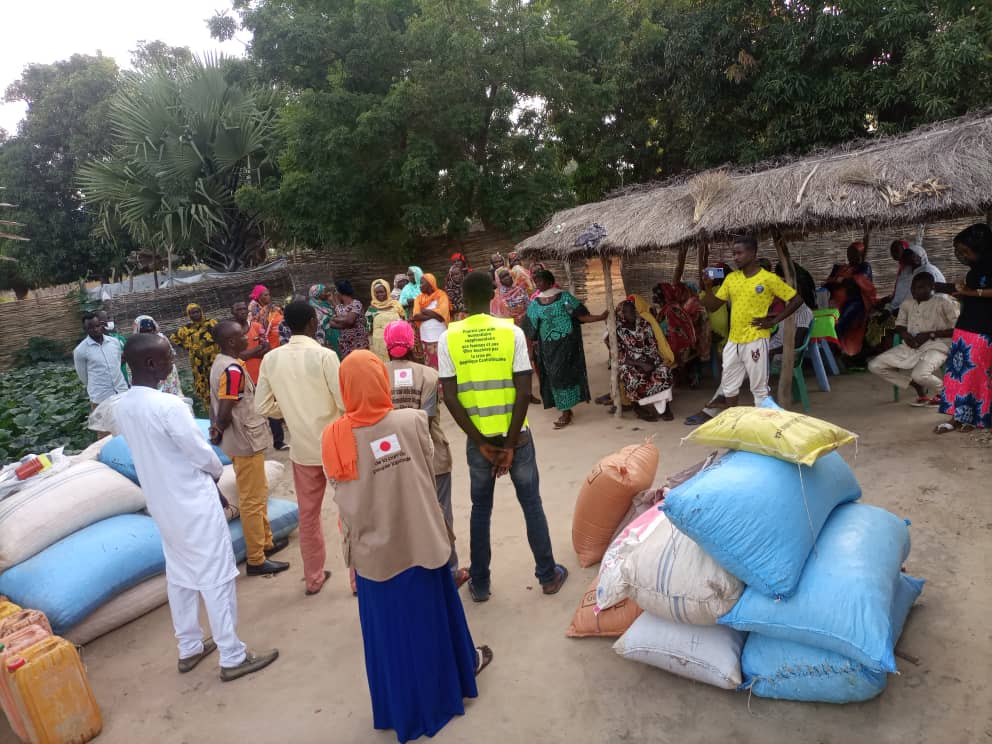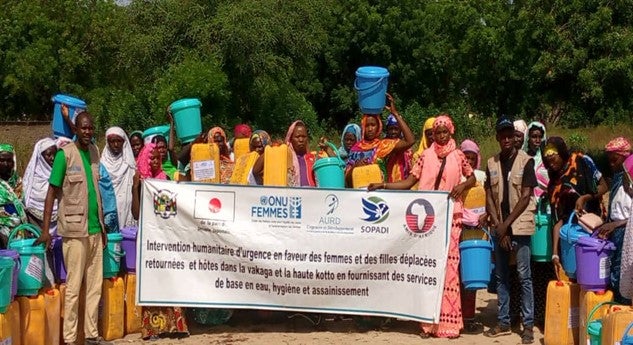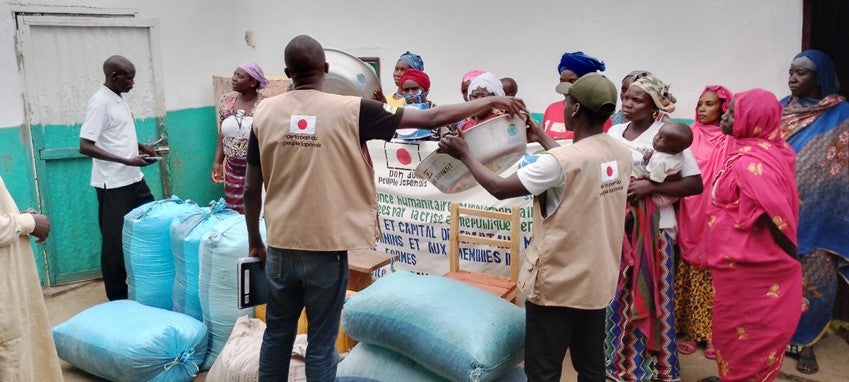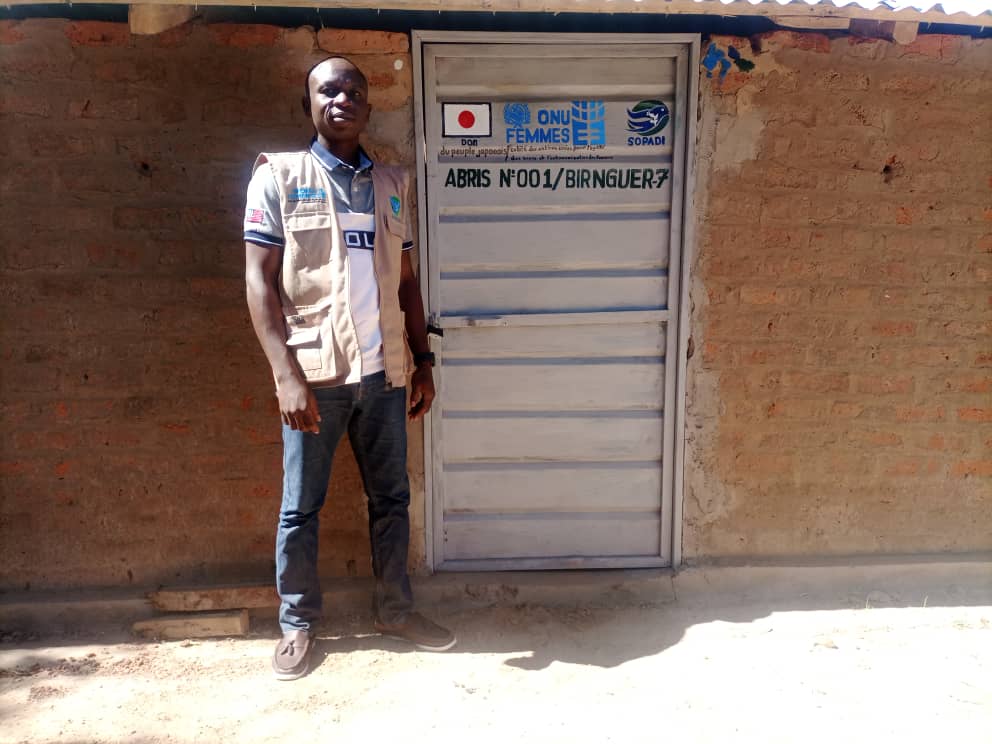PRESS RELEASE: LAUNCH OF JAPAN-FUNDED PROJECT
The impact of the regional crises on the borders of Sudan, Chad and the Central African Republic is mitigated by UN Women's humanitarian assistance, through the support of the Government of Japan.
Date:

Vakaga and Haute-Kotto (northern and north-eastern CAR) have suffered security crises for the past few decades, leaving the populations vulnerable and victims of endemic poverty. These complex crises have led to a profound deterioration of the structures and infrastructure and the capacity of the population to meet their basic needs, access basic social services, and effectively participate in peacebuilding and the recovery of their country.
Notwithstanding the existing challenges, the northern regions of the country, particularly the Vakaga and Haute-Kotto (north-east) and Ouham and Lim-Pendé (north-west), have seen a significant influx of asylum seekers, fleeing conflicts in Sudan and Chad, settling in already vulnerable and flood-prone areas, starting the first quarter of 2023.
According to OCHA, CAR hosts at least 25,836 people (21,135 Sudanese asylum-seekers and 4,701 Central African returnees, 88% women and children), particularly the localities of Birao and Amdafok (Vakaga prefecture) since April [1]2023 at the outbreak of the conflict in Sudan. In Chad, a violent incident intensified fighting between several groups, including armed groups, and led to the displacement of a total of 38,014 people (6,235 spontaneous returnees from the Central African Republic), 80 per cent of whom were women and children, in the neighbouring prefectures of Lim-Pendé and Ouham-Pendé. Today, of the nearly 64,000 people who have fled Chad and Sudan women and children make up at least 85 per cent.

According to needs assessments conducted in these regions, priority interventions include strengthening protection, providing multi-sectoral emergency assistance, access to durable solutions, as well as promotion of social cohesion and peaceful coexistence between different communities.
With the support of the Government of Japan, through the Japan Supplementary Budget 2023, UN Women will contribute to address the impact of the crises in Sudan and Chad on displaced and host communities, starting in January 2024. The project " Providing emergency support to mitigate the impact of regional crises (Sudan, Chad) on women and girls and their communities in North-western and north-eastern parts of CAR" aims to provide 35,000 people (asylum-seekers, internally displaced persons and returnees, as well as host communities) with access to basic social services, including water, sanitation and hygiene infrastructure, and social protection, especially women and girls. In addition, social cohesion, protection mechanisms and responses to violence will be put in place in the affected communities. The food security and resilience of at least 3,500 women and girls and their communities will also be supported. Lastly, the project will strengthen the capacities of at least 500 humanitarian actors on the ground to ensure that the gender dimension is taken into account in emergency response, in line with the Inter-Agency Standing Committee (IASC) guidelines on gender mainstreaming in humanitarian actions.
By January 2025, 40,625 direct beneficiaries (at least 75% of whom are women) and 110,000 indirect beneficiaries will be targeted by the project, which will provide emergency response and support for the resilience of communities in Vakaga, Haute-Kotto, Lim-Pendé and Ouham-Pendé, through a nexus approach (humanitarian, peace and development) and the promotion of women-led community initiatives.

Thanks to the support of the Government of Japan (through the 2022 Japan Supplementary Budget), UN Women and its implementing partners (the Japanese NGO Amis d’Afrique, and the NGOs SOPADI and AURD) supported 1,042 GBV survivors to benefit from dignity kits and psychosocial support, including more than 400 cases of rape, sexual and physical violence. In addition, more than 821 serious cases were referred to health facilities for medical care. The project also provided nutrition, food security and resilience assistance to 1,200 female-headed households, with engagement of the Central African Agency for Agricultural Development (ACDA), engaged in the activities to ensure their sustainability. This approach was particularly appreciated by women’s groups, such as those of Birao, who joined their voices to that of the ACDA Regional Director in thanking the Government of Japan, UN Women and its partners for the approach used, saying "Tonga na Zo a mou na mo soussou mo ke tè téti lango ako mais Zo so a ke fa na mo guingo soussou so nzara a ke sara mo pepe" to say "Give a man a fish and he will eat for a day. Teach a man to fish and he will eat for a lifetime ."

In addition, 8 pump-powered water boreholes and 12 gender-sensitive latrines are being built in IDP camps and repatriation areas, 41 vulnerable female-headed households (especially widows, single teenage mothers, pregnant or lactating women) have been identified and benefited from the new shelters through the project.
UN Women, as a member of the UN Country Team, the Humanitarian Country Team and as part of its coordination mandate (as lead of the Gender in Humanitarian Working Group), continues to work towards more gender-responsive humanitarian assistance and the promotion of a nexus approach between humanitarian assistance. UN Women is very grateful to the Government of Japan for its unwavering support to women, girls and communities affected by national and regional crises, and effective gender mainstreaming in humanitarian action and recovery in CAR.
For more information:
Novella NIKWIGIZE
Women, Peace, Security, and Humanitarian Action Program Officer
Edson by Blaise LANGATE OTTO KPINDET
Communications & Knowledge Management Officer
[1] UNHCR figures as of 2 January 2024